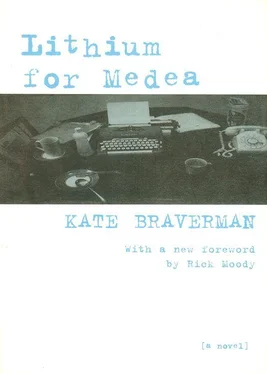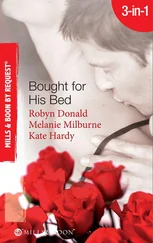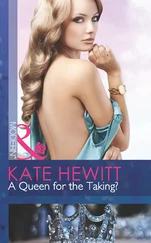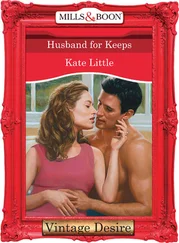There was a smell in the corridor. It was chilly but stale. There was a sense of something sweet slowly rotting. The chill. I thought of the rusty hull of a burned and abandoned ship. I thought of furnished rooms with threadbare brown rugs stained and stinking of old cigarette butts and whiskey. Rooms with the windows shut and bolted for weeks. I thought of drought air, a hot swirl across brittle dirt.
I walked quickly. I did not let myself look through the doors into the green cubicles, the human aquariums where vines twisted in the shadows and built slow webs with clawed fingers and called to them, Come down, come down. Surrender. It’s cool and green here. It’s better. Be one with the green vine and green shadow. Be one with the gouged hole in the earth. It’s better. Your skin is illusion. You can shed it like an old coat. Come to me. Be one and cool and green with me. It is your bone I want.
I did not turn around. I knew death was standing in that corridor directly behind my left shoulder.
“He’s dying,” Francine said.
I sat down at her side in the cafeteria. My mother’s yellow-brown eyes were filled with tiny black flecks. Now the black lines in her eyes seemed to be blowing. She was wearing the debris of a terrible storm inside her.
“He’s dying,” Francine repeated. “The room smells of death,” she said dully.
“He’s not dying. That’s why he got up. He fought death off. The crisis is passing.” Francine did not answer me. She looked unconvinced. I went on. “There are forces that can be tapped. He plugged into one when he fought death off.”
Francine studied me. “Your timing is way off,” she noted. “Settle down. You’re in this one. You’ve been dealt in. You got in when I decided to make you born. Are you following me? He didn’t want you.” Francine lit a cigarette. I stared at her. “He wanted to live that crummy life style forever. Riding trains. Wake up in Baltimore. Get on a train. Ride to Belmont. Go to a fight at the Garden. Get on a train. Wake up in Philadelphia. Go to a baseball game. Eat lunch in Washington.” Francine shook her head from side to side.
“He thought I’d go on like that forever. Like my childhood wasn’t bad enough. Like I needed more dislocations. I never had a home.” My mother studied me in the sharp white hospital light. “I’d already had two abortions. He thought kids would slow him down, cramp his style. He thought I wasn’t ready to be a mother. That’s what he kept saying. I wasn’t ready. Wasn’t grown up enough, he used to say. He said I didn’t know how to be a mother. So I finally said it’s this kid or I’m walking. He knew I meant it by then. You taking this in?”
I nodded my head. I was thinking about my father shadowboxing death in the corridor. He must have felt death leaning over. He must have felt the cool green breath. And he stood up. He squared up against it, man to man. Death was big. But my father was still breathing.
“You’re in this one no matter what,” Francine was saying. “I mean you’ll bring his food to him, if he ever eats again. If they build him a new throat. If he lives through this. If he gets the tubes out. If the skin graft works. Are you following me?”
“Yes.”
“I mean you’ll sit by his bed. You’ll talk to him. You’ll do whatever it takes. We will give him the will to go on. So I’m telling you straight. Pick up your cards and play.”
I was six years old. I took piano lessons after school. I collected clay models of dinosaurs. I collected butterflies. I was fascinated by transformations. But something terrible was happening. My father spent entire days in bed. She brought him lunch on a tray. I had a sense that my father, that big man, was turning back into a little boy. He wasn’t talking right. He was whispering. He was thinning. He didn’t drive his car anymore. He sat in mother’s seat while mother drove the car. He went away every day for the cobalt treatment. And what was cobalt? Why, cobalt was blue, a kind of blue machine, a sort of gun they aimed at my father’s throat. It made him throw his food on the floor, rasping, It tastes like garbage, garbage.
And Mommy was leaning against the front door crying. She was watching the strangers walk across the street, the strangers who came and carted away her brass lamps and the new china plates. The sofa was gone. The big glass and wood cabinet in the dining room where she kept the plates was gone. In school I was learning colors. Nobody had time to look at my red apples, my yellow bananas and green trees. Daddy wore an old gray wool bathrobe. He was cold all the time. Mommy was crying.
“Something has happened to Daddy,” Mommy said. We were in her bed together. Daddy was gone. Mommy’s eyes were stained red from crying. “Daddy’s gone to the hospital.” Did I know what a hospital was? “When he comes back he won’t be the same,” my mother told me. “He’ll have to rest for a long time. He will talk funny.”
“Funny?” I asked. I was lying in bed with my mother, in the big bed Mommy and Daddy slept in together. Funny? Daddy was always funny. He watched me play with my clay models. He came into my bedroom and pretended to be a dinosaur. He hunched his shoulders and swooped me up. He watched me study my butterflies. He spread his arms wide and pretended he had wings. We both spread our arms and pretended we had wings and ran down the street breaking fallen red leaves with our feet. We were laughing.
“Funny,” Mommy said again. “Like Billy.”
Billy was twelve. He lived across the street. He had been born deaf. When he talked the words sounded painful and deformed. Everyone said he talked like that because he ate worms. I thought about my father talking like Billy. Would everybody say my father ate worms? I stood up. I stared at my mother. She was watching me from the bed. She was reaching out her arms for me. I thought about my father talking like Billy. Then I fainted.
“We’ll get the tests back today. It might be his gall bladder,” Francine said. “He can’t take another surgery now. We may have to make a decision.”
“About pulling the plugs?”
Francine stared down at the table. She nodded her head. She was biting her lip.
Slowly I managed to stand up. The world had broken down into still frames.
My father is taking me to my first baseball game. The Philadelphia Athletics are playing. I feel I’ve been sitting on my strange hard seat for a long time. I stand up. It is the National Anthem. “I want to go home now,” I tell my father. He is looking down at the big green field. “But the game hasn’t started yet,” he says. Then he shrugs. He laughs and his laughter is big like the wind. “O.K., kid. O.K.” And he takes me by the hand and leads me out of the stadium.
I sit under a tree. Horses pass in front of me. It is Delaware Park. My father is whispering to me. “Pick one,” he whispers. I watch the horses pass, enormous near my face. I point to a gigantic grayish beast. My father tells me to sit by the tree. “Just a small flier,” he tells Francine. She is angry. In the car on the way home she doesn’t speak to my father. She leans against the car window, crying. From time to time she says, “Jesus Christ. A hundred bucks. Jesus Christ. You went for the whole goddamn hundred.”
My father goes away on the train. It’s a holiday. He doesn’t have to go to work. He waves to me from the train. He’s going to the race track in New York. He comes back late at night. He is laughing. He walks into the old kitchen. He takes out a pocketful of green bills. He throws them on the table like cards. My mother and father are laughing. “Buy a hat,” my father tells my mother. “Buy that coat you saw downtown.” My father puts his arms around both of us. He hugs us so tight I think we’ll break.
Читать дальше












